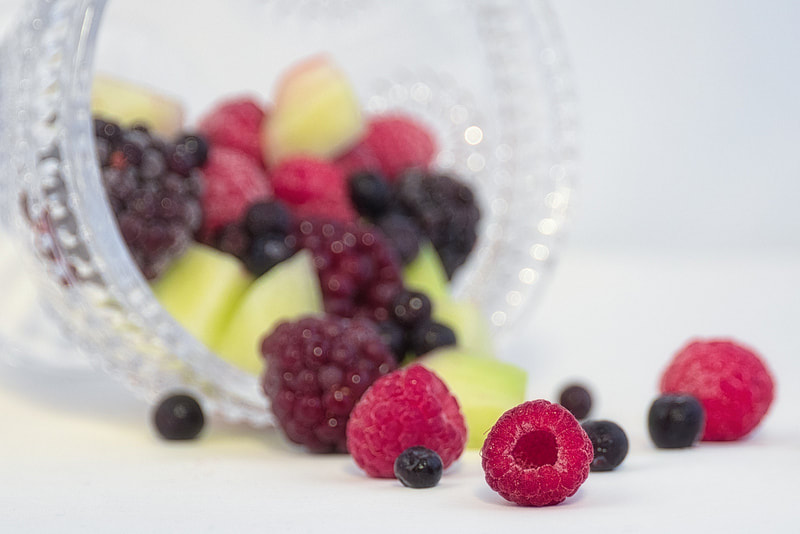|
Every day that I study our bodies, and its relationship to food I learn something new. Hippocrates said nearly 2500 years ago that, “all disease begins in the gut”. All aspects of our health depend on good digestion and yet its importance is often underestimated by many people. The gastrointestinal system contain more health determining bacteria than any other part of our body. It not only digests our foods, it effects our immune system, metabolism and inflammation levels. This week I would like to share some interesting facts and tips on how to improve your digestion and deal with “leaky gut”. Here are some interesting facts about digestion:
* Satiation is a major clue in letting us know whether we are well nourished or absorbing nutrients efficiently. Hungry all the time? No appetite at all? Your body is talking to you. * Do you feel bloated, have gas or indigestion after eating? Conversely, having no desire to eat means that food sits in your stomach for too long- a sign of low stomach acid. 90 per cent of people have too low stomach acid so those antacids you are popping are not the answer and could be making your situation worse. * Symptoms of low or high acid are the same. Reflux happens when food stays in the stomach too long, due to a weak cardiac sphincter. The food comes back up the esophagus. Antacids do more harm than good, causing the food to sit in your stomach even longer. Long term they deplete your body of nutrients and have a host of unpleasant side effects. * Low stomach acid may be the result of stress, excessive carbohydrates, allergies, alcohol use, carbonated beverages, and nutrient deficiencies especially zinc and B6. * Optimal digestion can only happen when you are in a parasympathetic state, relaxed, stress free and focused on eating. Wow, I see a big problem here with our present day, eat on the run way of life. And where multi-tasking is often the norm. * Digestion begins in your brain when you begin thinking of food. * The production of stomach acid is reliant on a hormone called gastrin which is created in the stomach. Stomach acids are necessary to break down food, and protect you from parasites and bad bacteria. We need our stomach acids to be between 1.5 and 3 on the pH scale. So we need stomach acids to break down protein and conversely too much protein and too little acid will result in undigested food hanging around in your gut causing irritation and inflammation in the lining of the stomach, and this is why too much protein isn’t good for us. * We get a new stomach lining every 21 days. There is hope! * Carbs are digested in the mouth, proteins in the stomach and fats in the duodenum, the first and shortest part of the small intestine. * People with optimal gut health should poop two snakes (S shaped) a day! * Toxic stress can also negatively effect our ability to digest. Polluted air, perfumes, toxic exposure all inhibit our saliva production and the production of salivary amylase. When this happens those carbohydrates that are supposed to be broken down in the mouth instead work there way down the digestive tract and begin to ferment. Here comes gas and bloating! * The top threats to your gut microbiome are: stress, a poor diet of processed foods, refined grains and sugars, contraceptives, and overuse of antibiotics and other drugs. * The top consequences of poor digestion are stomach ulcers, autoimmune diseases, mental illness but lesser but still serious are also caused by poor gut biome such as ear and yeast infections, nail fungus, hormonal imbalances, eczema and acne. Also, without a sufficient amount of acids you cannot absorb calcium and magnesium both which help the heart muscle contract. So there is a connection between digestion and heart issues. (More on this in a future blog). * Good bacteria in your gut produce important B vitamins such as thiamine, riboflavin and cobalamin (B12). And 90 per cent of serotonin is produced by good bacteria in the gut. * We need to eat foods that create an environment for bacteria to grow. These prebiotics feed the microbes in the gut. Eat low sugar fruits such as berries, vegetables such as dark leafy greens, herbs and spices, and dark chocolate. * Probiotics may be necessary to get your microbiome in good working order especially if you have had your appendix removed ( a bacteria generator) or if antibiotics have been taken. * Fiber rich foods helps control blood sugar levels and prevent constipation. Improve your digestion and you improve your health. All aspects of your life! Keep tuning in for more help in improving your digestion. And keep eating healthy vegetables and greens! Please share.
0 Comments
Your comment will be posted after it is approved.
Leave a Reply. |
AuthorSusanne Jakubowski is a holistic nutritionist, yoga teacher, Thai Yoga Therapist, and cancer survivor. CategoriesArchives
January 2022
|
Photos from mripp, nikita_nikiforov, photoheuristic.info, focusonmore.com, Jeanne Menjoulet, Scouse Smurf, Ktoine, verchmarco, Kris Krug, U.S. Army Space and Missile Defense Command (SMDC), wuestenigel, verchmarco (CC BY 2.0), Bernt Sønvisen, verchmarco, wuestenigel (CC BY 2.0), Alizarin Krimson, nillamaria, verchmarco, Per Harald Olsen, trendingtopics, wuestenigel, Markus Binzegger, JIRCAS, forthwithlife, colinpoe, BladDad, Stephen Pearson, UNDP Ukraine, GreenFlames09, jlodder, mealmakeovermoms

 RSS Feed
RSS Feed
